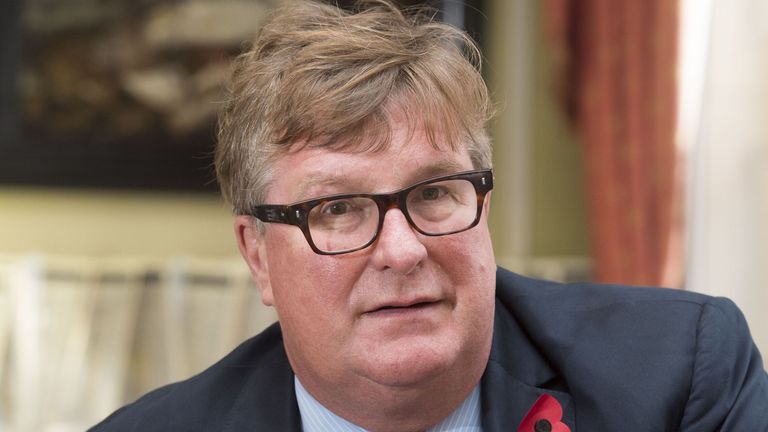Privacy: How previous BBC scandals have impacted the naming of the suspended presenter
With growing calls for the presenter facing allegations to be named, a previous BBC scandal lies behind one of the reasons news organisations are reluctant to reveal his identity.
There was a big change to the way the media approached reporting after Sir Cliff Richard, 82, won a privacy case in 2018 against the BBC over its coverage of a South Yorkshire Police raid on his home in Sunningdale, Berkshire, after he was falsely accused of historical sex offences.
This was reinforced in a landmark Supreme Court ruling last year in a case relating to an American businessman – referred to as ZXC – which said that a person being investigated for a crime generally has “a reasonable expectation of privacy”.
BBC presenter scandal – latest updates
Although the unnamed presenter is not currently under investigation by police, both cases have had a significant effect on the way the media report allegations against high-profile figures as news organisations tend to err on the side of caution rather than risk facing expensive legal action.
However, there is a fine balance between the right to privacy and freedom of expression and the law is uncertain, with interpretation specific to the facts of each case.
Hedge fund manager Crispin Odey, for example, was last month named by the Financial Times and Tortoise Media in relation to allegations by 13 women that he had sexually assaulted them or harassed them over a 25-year period. He has denied the claims.
And it has been widely reported that BBC Radio 1 DJ Tim Westwood has been questioned by police twice this year over five alleged sex offences said to have taken place between 1982 and 2016.
Read more:
How social media has collided with privacy and defamation laws
How the BBC says it handled complaint – full timeline
The 65-year-old, who left the BBC in 2013 and stepped down from his show on Capital Xtra in April last year, strongly denies the allegations.
An independent inquiry into what the corporation knew about allegations of sexual misconduct is expected to publish its findings in the summer.
Privacy and defamation laws work side by side and media lawyers and editors will weigh both before publishing a story.
Celebrities have often looked to the courts for protection, seeking injunctions to stop publishers identifying them in relation to allegations they have faced – or suing, like Sir Cliff, when they believe their rights had been breached.
Named by MPs
MPs have previously named stars protected by the courts, including former Topshop owner Sir Philip Green, who was named by former cabinet minister Lord Hain despite an injunction preventing The Daily Telegraph from identifying the businessman in relation to allegations against him.
Similarly, in 2011, Liberal Democrat MP John Hemming named then Manchester United player Ryan Giggs as the footballer at the centre of a Twitter row about injunctions.
Other celebrities have been more successful in protecting their identities – in 2016, the Supreme Court ruled an injunction banning the naming of a celebrity – known as PJS – involved in an alleged extra-marital affair should stay in place.
The Sun on Sunday argued it should be able to publish his name because it had already been published in Scotland and the US.
But judges ruled there is “no right to invade privacy” just because he and his spouse, known as YMA, with whom he had young children, were well known.
For all the latest entertainment News Click Here


